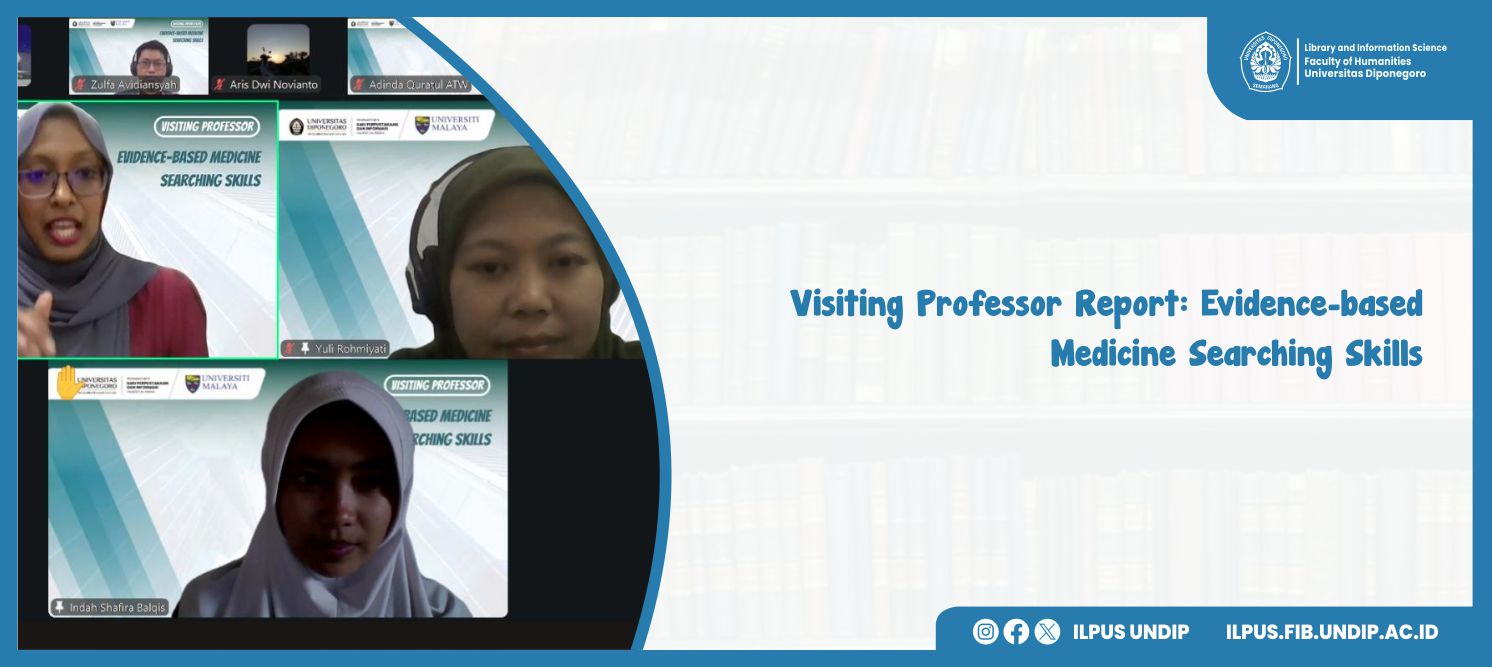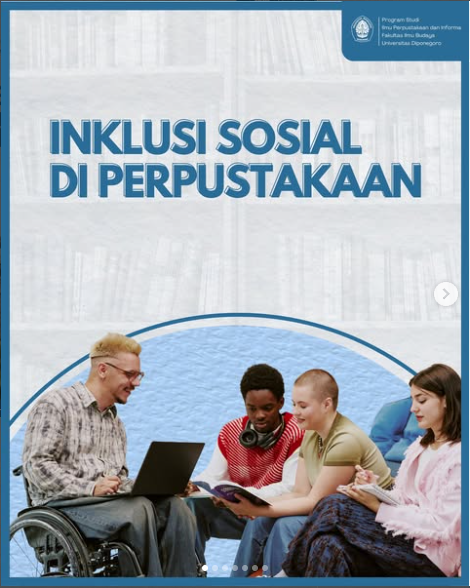
Semarang, September 24, 2025 – The Faculty of Humanities, Library and Information Science Department, and the HMPS IPI student organization hosted a public lecture titled “Evidence-based Medicine Searching Skills” presented by Dr. Ranita Hisham Shunmugam, Senior Lecturer at the Department of Library and Information Science, Faculty of Arts and Social Sciences, Universiti Malaya, Malaysia. 
Dr. Ranita is an academic specializing in information literacy, scientific searching skills, and evidence-based practice (EBP) in health sciences. She actively publishes research papers, collaborates in international projects, and contributes to developing the skills of medical librarians worldwide.

In her lecture, Dr. Ranita highlighted the significance of Evidence-based Medicine (EBM) as an approach to:
1. Improve patient outcomes.
2. Bridge research and clinical practice.
3. Support clinical decision-making.
4. Optimize information resources.
5. Build patient trust in healthcare services.

She elaborated on the five steps of EBP:
– Ask: Formulating an answerable clinical question.
– Acquire: Searching for the best available evidence.
– Appraise: Critically evaluating the quality of evidence.
– Apply: Integrating results with clinical expertise.
– Assess: Reviewing performance and outcomes.
Dr. Ranita also emphasized the role of medical librarians, who are skilled at navigating databases, teaching controlled vocabulary such as MeSH, and supporting the critical appraisal of literature, thus complementing clinicians’ lack of time and expertise in searching.

Participants were also introduced to the Systematic Review (SR) method, including its distinction from a literature review, its comprehensive steps, frameworks such as PICO, SPICE, and ECLIPSE, as well as the importance of reputable databases like PubMed, Cochrane Library, and ProQuest.
The lecture concluded with the reminder that evidence-based searching skills require continuous refinement: “There are no perfect search strategies the first time—refine, refine, refine!”

During the question and answer session, a number of enthusiastic participants asked Dr. Ranita Hisham Shunmugam questions related to the material that had been presented. One of them, Kak Indah, asked, “What is the biggest challenge in teaching evidence-based medicine searching skills?” In response, Dr. Ranita Hisham Shunmugam said, “Okay, as teachers of evidence-based medicine, we sometimes just teach and the students just listen. But after class is over, that’s it, they don’t practice it anymore. For example, I once taught a literacy course in the first semester. We taught it in the early semesters, but when they reached the sixth semester, the faculty of medicine asked them about the actual search methods, and they didn’t know. It was as if they had never learned the material in the first semester. This often happens because they don’t practice it. So, the biggest challenge, in my opinion, is that they don’t immediately put the knowledge into practice. Especially medical students, whose schedules are very busy. They aren’t really required to do serious research and so on. That’s why this feels quite challenging for them. But at least I’m glad that we’ve managed to open their eyes and make them aware that these things are important for them to master. That’s about it.
Author: Aris Dwi Novianto




